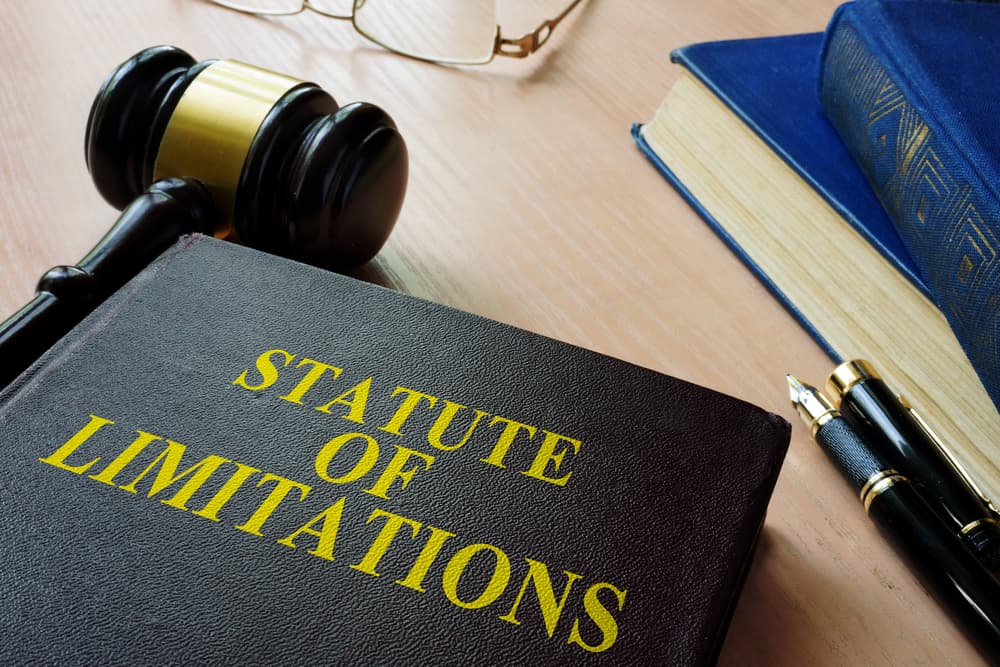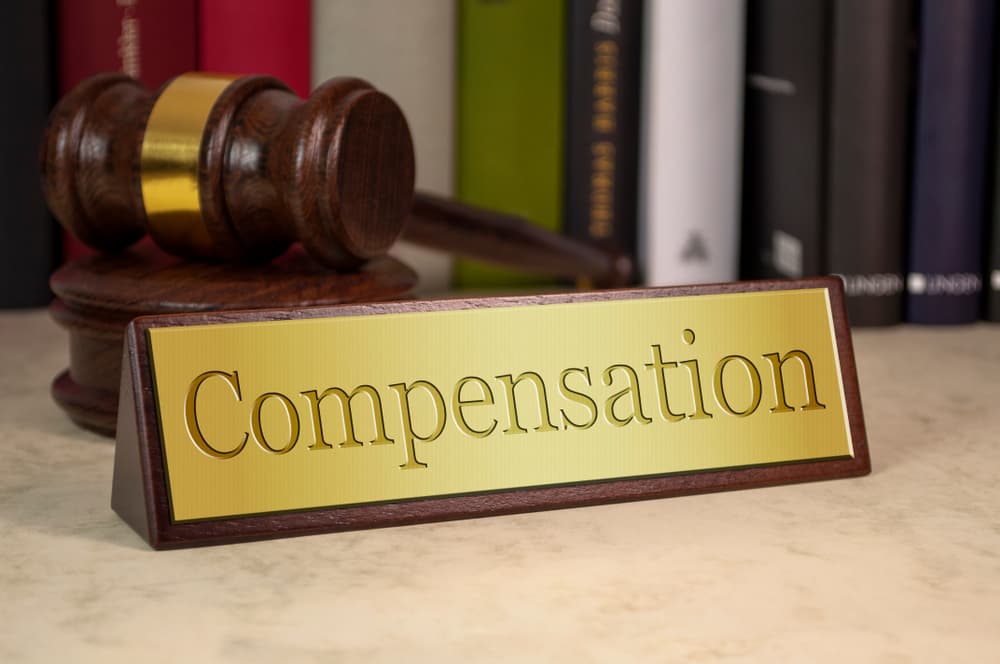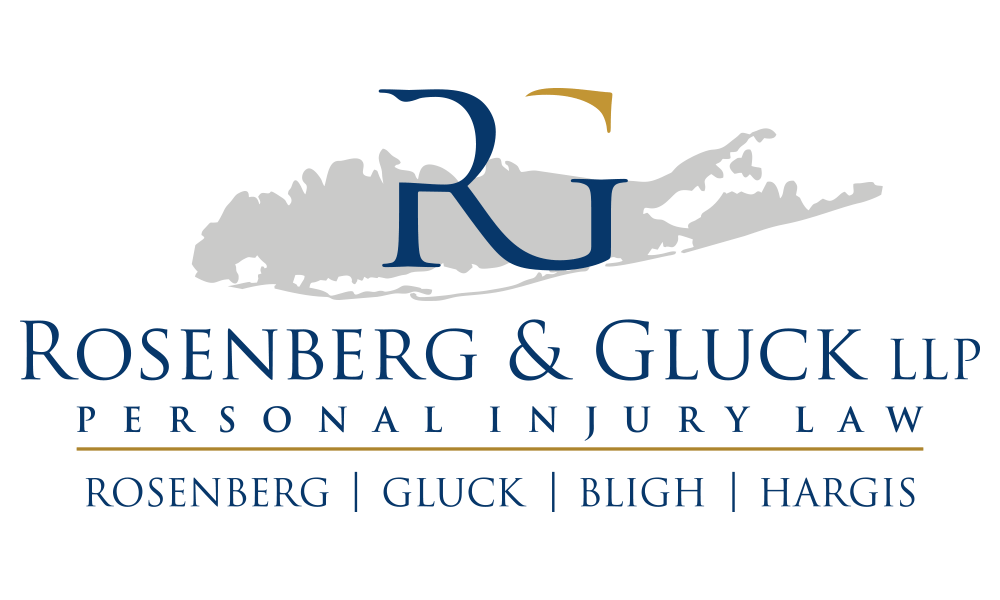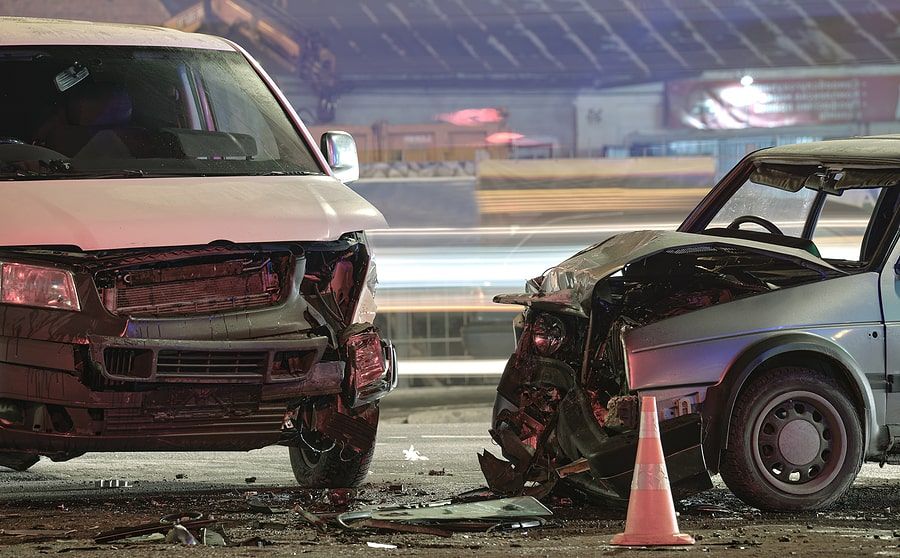Motorcycle accidents can be life-altering events, often resulting in serious injuries and complex legal situations. If you’ve been involved in a motorcycle accident in New York, you may be wondering about fault, your rights, and whether you can pursue a personal injury claim.
This comprehensive guide will explore the factors that contribute to motorcycle accidents, the legal landscape in New York, and how an experienced Long Island motorcycle accident lawyer can help you navigate the complexities of your case.
Common Causes of Motorcycle Accidents

Motorcycle accidents can occur due to the negligence of other drivers. Understanding these common causes can help your attorney shed light on potential liability in your case.
Some frequent contributing factors include:
- Failure to yield right-of-way: Many accidents occur when other drivers fail to give motorcyclists the right-of-way, particularly at intersections or when changing lanes.
- Distracted driving: With the rise of smartphone use, distracted driving has become a significant hazard on the roads, putting motorcyclists at increased risk.
- Speeding: Excessive speed reduces reaction time and increases the severity of accidents, posing a particular danger to more vulnerable road users like motorcyclists.
- Impaired driving: Drivers under the influence of alcohol or drugs have impaired judgment and reflexes, making them a severe threat to motorcycle operators.
- Unsafe lane changes: Drivers who fail to check their blind spots or signal properly when changing lanes can easily collide with motorcycles.
- Sudden stops: Vehicles abruptly braking in front of motorcycles can lead to rear-end collisions, which are particularly dangerous for riders.
- Road hazards: Potholes, debris, or uneven road surfaces can pose significant risks to motorcyclists, especially if not properly maintained by responsible authorities.
- Vehicle defects: In some cases, mechanical failures in either the motorcycle or other vehicles involved may cause accidents.
Each case is unique, and multiple factors may contribute to a single incident. This complexity underscores the importance of seeking professional legal guidance to properly assess your situation.
Determining Fault in Motorcycle Accidents
Establishing fault is a critical aspect of any motorcycle accident claim. In New York, the process of determining fault involves a thorough investigation and analysis of the circumstances surrounding the accident. Here’s what you need to know:
Negligence and Liability
In most cases, fault is determined based on the legal concept of negligence. A driver is considered negligent if they fail to exercise reasonable care while operating their vehicle.
This could include speeding, distracted driving, or disobeying traffic laws. You can hold the driver liable for damages if this negligence directly leads to an accident.
Comparative Negligence in New York
New York follows a pure comparative negligence rule. This means that even if you were partially at fault for the accident, you can still recover damages. However, your compensation will be reduced by your percentage of fault. For example, if you’re 20% at fault for the accident, your potential compensation would decrease by 20%.

Evidence Used to Determine Fault
Several types of evidence can establish fault:
- Police reports
- Eyewitness testimonies
- Traffic camera or other footage
- Accident scene photographs
- Vehicle damage reports
- Medical records
- Expert testimony (accident reconstructionists, medical professionals)
Multiple Party Liability
In some cases, more than one party may be at fault. For instance, if a defective motorcycle part contributed to the accident, the manufacturer might share liability with a negligent driver.
No-Fault Insurance and Motorcycle Accidents
While New York is a no-fault insurance state, these rules do not apply to motorcyclists.
This means that, unlike car accident victims, motorcyclists are not required to meet a serious injury threshold to pursue a claim against the at-fault party. However, it also means they don’t have access to immediate no-fault benefits for medical expenses and lost wages.
The Role of Insurance Companies
Insurance adjusters will conduct their own investigations to determine fault. However, their primary goal is often to minimize payouts. This is why it’s important to have legal representation to protect your interests.
The determination of fault often relies on evidence that can quickly disappear or degrade over time. Skid marks fade, witnesses’ memories become less clear, and surveillance footage may be overwritten. This underscores the importance of starting the investigative process as soon as possible after the accident.
In the aftermath of an accident, avoid making any statements that could be construed as admitting fault. Even a simple apology could potentially be used against you later. Stick to exchanging necessary information and seeking medical attention.
Motorcycle accidents often involve unique factors that can complicate fault determination. For example, the misconception that motorcyclists are inherently reckless can sometimes unfairly influence perceptions of fault. An experienced attorney can help combat these biases and ensure a fair evaluation of your case.
New York Laws Affecting Motorcycle Accident Claims
Here are some key laws and regulations that may impact a motorcycle crash case in New York:

Statute of Limitations
In New York, the statute of limitations for personal injury claims, including motorcycle accidents, generally gives you three years to file a lawsuit against the at-fault party.
You should be aware of an exception that can affect the amount of time you have to file a claim. If your accident involves a municipality (such as a city, county, or state entity), you must file a Notice of Claim within 90 days of the accident, and the lawsuit must be filed within one year and 90 days.
Helmet Laws
New York requires all motorcycle operators and passengers to wear approved helmets. Failure to wear a helmet could impact your claim, even if it didn’t cause the accident. The defense might argue that your injuries were exacerbated by not wearing a helmet, potentially reducing your compensation. Make sure to discuss this with your lawyer.
Motorcycle Insurance Requirements
New York law requires motorcyclists to carry minimum liability insurance:
- $25,000 for bodily injury to one person
- $50,000 for bodily injury to all persons
- $10,000 for property damage in any one accident
It’s often advisable to carry more than the minimum, as medical costs from motorcycle accidents can quickly exceed these limits.
What are Motorist Responsibilities Around Motorcycles?
While New York doesn’t have a comprehensive set of laws specifically addressing how drivers should behave around motorcycles, several existing traffic laws and regulations are particularly relevant to motorcycle safety.
Here are some key legal considerations for drivers interacting with motorcycles in New York:
- Right-of-Way Laws: New York Vehicle and Traffic Law (VTL) requires drivers to yield the right-of-way to oncoming traffic, including motorcycles, when making left turns. Failure to do so is a common cause of motorcycle accidents.
- Safe Passing Laws: Drivers must pass motorcycles (and other vehicles) at a “safe distance.” While New York doesn’t specify an exact distance, many safety experts recommend at least 3 feet.
- Lane Usage: Prohibits drivers from depriving motorcyclists of the full use of a lane. This means drivers cannot attempt to share a lane with a motorcycle or crowd them within their lane.
- Turn Signal Usage: Requires all drivers, including those interacting with motorcycles, to use turn signals when changing lanes or turning. This is crucial for giving motorcyclists time to anticipate and react to a driver’s movements.
- Distracted Driving Laws: New York has strict laws against distracted driving, which are especially important for motorcycle safety. The law prohibits using handheld mobile devices while driving and bans texting while driving.
- Move Over Law: While primarily designed for emergency vehicles, New York’s “Move Over” law also applies to hazard vehicles, which could include disabled motorcycles. Drivers must move over a lane or slow down when approaching such vehicles.
- Tailgating: The law prohibits following another vehicle “more closely than is reasonable and prudent.” This is particularly important for motorcycles, which can stop more quickly than cars in many situations.
- Alcohol and Drug-Impaired Driving: New York’s strict DWI laws are crucial for motorcycle safety. Impaired drivers pose a significant threat to more vulnerable road users like motorcyclists.
While these laws don’t apply exclusively to motorcycle interactions, they help ensure motorcycle safety on New York roads. Drivers who violate these laws and cause accidents involving motorcycles may face not only traffic citations but also civil liability in personal injury claims.
The Importance of Consulting an Attorney for a Motorcycle Claim
After a motorcycle accident, consulting with an experienced personal injury attorney can be the right move to protect your rights and maximize your chances of fair compensation. An attorney can help you understand your rights and options, ensuring you don’t miss out on potential compensation you’re entitled to.
Proper Valuation of Your Claim
Insurance companies often try to minimize payouts. Dealing with insurance adjusters can be challenging. They may use tactics to devalue your claim or trick you into admitting fault. An attorney can handle all communications with insurance companies on your behalf, protecting you from potential pitfalls.
Gathering and Preserving Evidence
Important evidence can disappear quickly after an accident. An attorney can act swiftly to gather and preserve evidence that your case may need, such as:
- Traffic camera footage
- Witness statements
- Accident scene photos
- Vehicle damage reports
- Medical records
Personal injury attorneys often have networks of expert witnesses who can provide crucial testimony to support your case. These may include:
- Accident reconstruction specialists
- Medical experts
- Economic loss experts
- Life care planners
Navigating Legal Procedures
Filing a lawsuit involves complex legal procedures and strict deadlines. An attorney can ensure all necessary paperwork is filed correctly and on time, preventing potential dismissal of your case on technical grounds.
Most personal injury cases are settled out of court. An experienced attorney can skillfully negotiate with insurance companies and defense lawyers to secure a fair settlement.
However, if your case does go to trial, having an attorney with courtroom experience is invaluable. They can present your case effectively to a judge and jury, increasing your chances of a favorable outcome.
At Rosenberg & Gluck LLC, we work on a contingency fee basis. This means you don’t pay any upfront costs, and your attorney only gets paid if they win your case. This allows you to access high-quality legal representation without financial risk.
Without legal guidance, it’s easy to make mistakes that could harm your case. An attorney can help you avoid common pitfalls, such as:
- Giving recorded statements to insurance companies
- Accepting early settlement offers that may be too low
- Missing important deadlines
- Failing to document your injuries and recovery process properly
Potential Compensation in Motorcycle Accident Claims
Ultimately, the goal of hiring an attorney is to maximize your compensation. Studies have shown that accident victims who hire attorneys typically receive larger settlements than those who handle claims on their own. Here are the main categories of compensation you might pursue:

Medical Expenses
This category includes all costs related to your medical treatment, such as:
- Emergency room visits
- Hospital stays
- Surgeries
- Medications
- Physical therapy
- Rehabilitation
- Future medical care related to your injuries
Lost Wages
If your injuries caused you to miss work, you can claim compensation for:
- Lost salary or wages
- Lost bonuses or commissions
- Lost vacation or sick days used for recovery
Loss of Earning Capacity
If your injuries affect your ability to work in the future, you may be able to claim compensation for:
- Reduced ability to earn income
- Costs of vocational rehabilitation
- Lost employment benefits
Pain and Suffering
This non-economic damage compensates you for the physical pain and emotional distress caused by the accident and your injuries.
Factors that may influence this amount include:
- Severity of injuries
- Duration of recovery
- Impact on daily life
- Psychological effects (e.g., anxiety, depression, PTSD)
Loss of Enjoyment of Life
If your injuries prevent you from engaging in activities you previously enjoyed, you may be compensated for this loss. This could include:
- Hobbies
- Sports
- Social activities
- Family interactions
Property Damage
You can claim compensation for damage to your motorcycle and other personal property, including:
- Repair costs
- Replacement costs for totaled vehicles
- Damaged gear (helmet, protective clothing, etc.)
Out-of-Pocket Expenses
You may be reimbursed for various expenses related to your accident and recovery, such as:
- Transportation costs to medical appointments
- Home modifications to accommodate injuries
- In-home care services
Disfigurement or Permanent Disability
If your injuries result in permanent scarring, disfigurement, or disability, you may be entitled to additional compensation.
In some cases, your spouse may be able to claim compensation for loss of companionship and support due to your injuries. In rare cases involving extreme negligence or intentional misconduct, punitive damages may punish the wrongdoer and deter similar behavior.
Wrongful Death Damages
In the tragic event of a fatal motorcycle accident, family members may pursue a wrongful death claim, which can include:
- Funeral and burial expenses
- Loss of financial support
- Loss of guidance
- Medical expenses incurred before death
The specific compensation you may be eligible for depends on the details of your case.
Factors that can influence your potential compensation include:
- The severity of your injuries
- The clarity of fault in the accident
- The available insurance coverage
- Your own level of comparative negligence, if any
- The skill of your attorney in negotiating and presenting your case
Contact Rosenberg & Gluck LLC to Represent Your Motorcycle Accident Injury Lawsuit

Motorcycle accidents can have devastating consequences, leaving victims facing physical, emotional, and financial challenges. If a motorcycle accident in New York injured you, you have rights and the potential for compensation.
The complexities of motorcycle accident claims, from determining fault to navigating state laws and dealing with insurance companies, underscore the importance of experienced legal representation. Don’t face the aftermath of a motorcycle accident alone.
At Rosenberg & Gluck LLP, we have the experience and dedication to guide you through every step of your personal injury claim. Our experienced attorneys understand the unique challenges of motorcycle accident cases and are committed to fighting for the full compensation you deserve.
Take the first step toward protecting your rights and securing your future. Contact Rosenberg & Gluck LLP today for a free, no-obligation consultation. Call us at (631) 451-7900 or contact us online. Act now – your future may depend on it.








